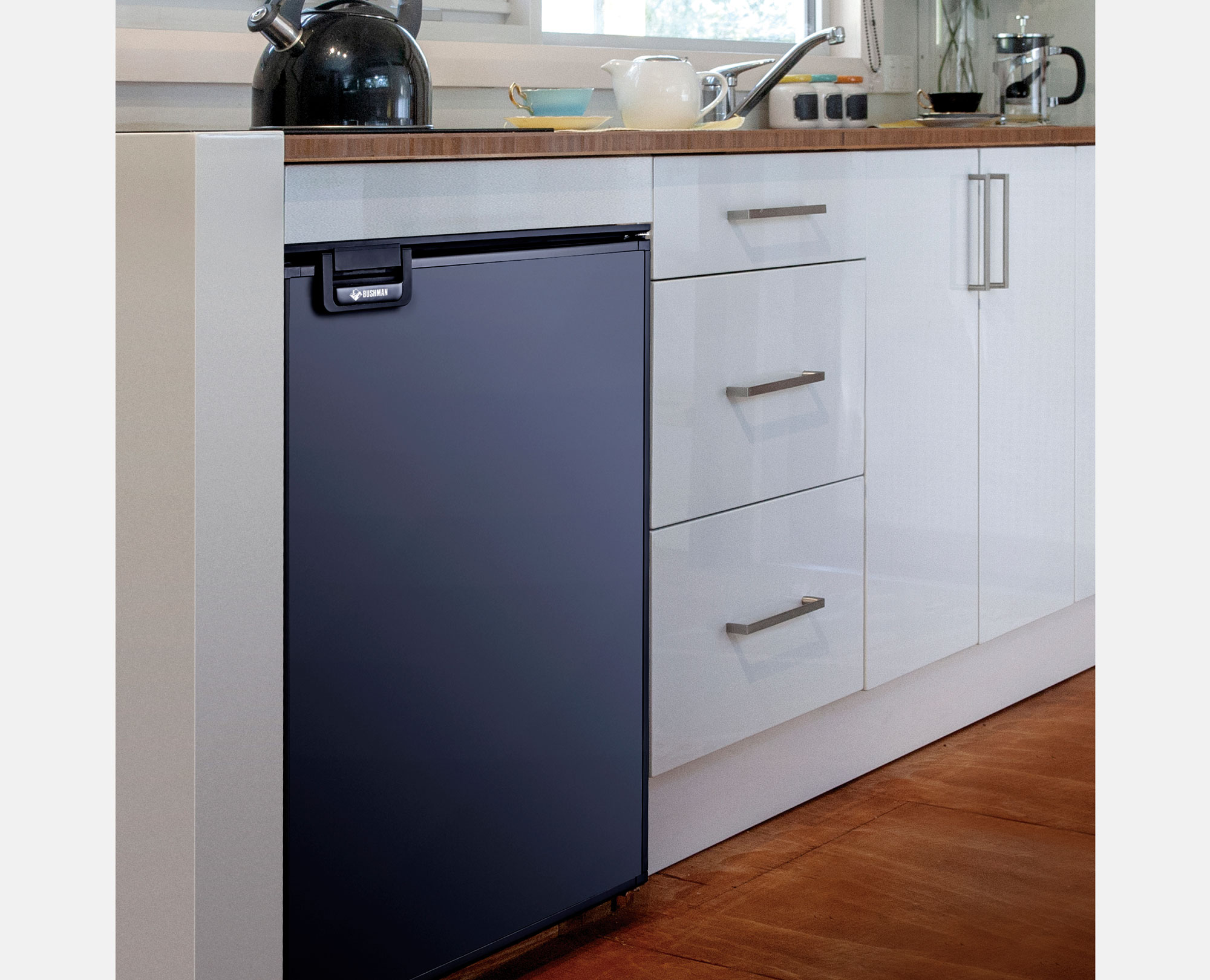Buying a new refrigerator for your caravan? If so, you’ve probably been faced with the choice between a compressor (2-way) and 3-way refrigerator. Most portable fridges today belong to one of these two categories, and each variety has its own pros and cons.
In this blog, we’ll be talking about the basic differences between a compressor and 3-way refrigerator.
What is a compressor (2-way) refrigerator?
A compressor fridge gets its name from the compressor unit that generates its cooling power. This variety of portable refrigerator is also known as a 2-way fridge on account of the two ways of providing power to its compressor – the 240V mains or a 12V battery.
What is a 3-way refrigerator?
A 3-way refrigerator has 3 modes of operation – the 240V mains, a 12V battery, and LPG gas. This type of portable fridge does not include a compressor, and cools instead by means of a gas flow heat exchange system. On account of their ability to run on LPG, 3-way refrigerators do not rely on a power source and are thus hugely popular among the caravanning populace.
Which type of caravan refrigerator should you opt for?
There is no single objective answer to that question because both compressor and 3-way refrigerators have their unique advantages. You should base your choice on the nature of your requirements. As a general rule:
Opt for a compressor (2-way) refrigerator if heavy-duty cooling is your priority. Because of its powerful compressor motor, this refrigerator will be able to cool its contents down to very low temperatures. The cooling achieved by a compressor fridge will also be extremely consistent even through fluctuating outdoor conditions, which helps if you’re carrying frozen perishables that need to be stored at very specific temperatures. Besides, a compressor fridge does not require level ground to operate, unlike the 3-way variety.
However, there are a few obvious trade-offs here. For starters, you’ll either need your rig to be hooked to a power source or maintain a charged battery bank. Typically, caravan batteries don’t last more than a couple of days in one charging cycle, which means that repeated charging of your battery will be needed in order to keep your compressor fridge running. Also, bear in mind that every compressor fridge will make at least a little noise while running.
Opt for a 3-way refrigerator if you’ll spend long periods of time off the grid. The LPG mode will keep your refrigerator running for up to 3 weeks at a stretch, even if you’re parked without power (if you’re using a standard 9 litre LPG bottle). What this also means is that you can go caravanning with a basic mobile home setup, meaning one that doesn’t have a battery or power source. All you’ll need to do is get a gas bottle or refill and your refrigerator will be back in business. As an added plus, 3-way fridges make no noise while running, because their heat exchange cooling mechanism is a silent process.
The main downside to these fridges is the fact that they need level ground in order to function at all. Also, their cooling ability will not match up to the compressor type refrigerator in terms of consistency. Another very important consideration is that your 3-way fridge is essentially optimised for the LPG mode, and will consume huge amounts of power when running on the 240V or 12v source. Your caravan will also need a fair degree of ventilation while using the LPG mode.
So, before you purchase your new caravan refrigerator, list out your requirements and caravanning preferences. Weigh these against the pros and cons of both compressor and 3-way refrigerators before making the final decision.
(1).png)
If you require further information, please feel free to contact one of our friendly team members on 1800 787 278 or on our live chat www.caravanrvcamping.com.au. Or view our full range of fridges here.
-
DISCLAIMER* Please note, this advice is general in nature and we strongly recommend consulting the product manual and where relevant, a professional installer.






